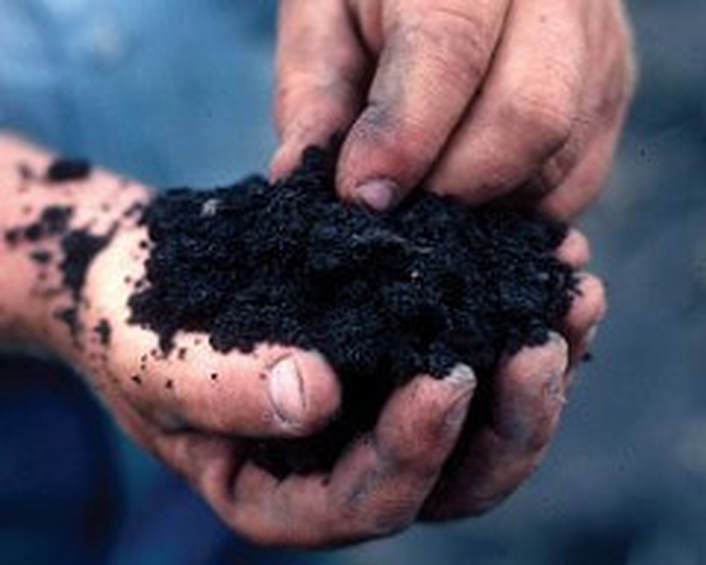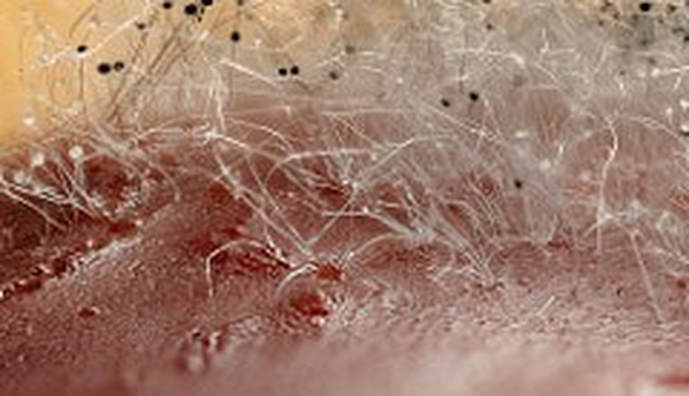|
Though we don't always see them, most organic gardeners know that there are a range of living creatures in our gardens which help us in our efforts to grow our own food. Though we cannot see whether these creatures are thriving, what we can do is monitor the effects that they have. In a healthy organic garden, these hidden helpers in your garden will be contributing to the yield that you achieve. The more efforts we make to protect and enhance the environment for the bacteria and fungi in garden soil, the better the harvest of edible produce we will be able to achieve from our growing areas. Bacteria in Your Garden Without bacteria, we would not have the natural cycles as we know them. Organic gardeners depend, whether they know it or not, on the action of these microscopic lifeforms. Bacteria aid gardeners in a range of different ways. Bacteria are all around us all the time. When we think of bacteria, we tend to think of those bacteria that can do us harm and make us sick. But many bacteria are beneficial to us and to the gardens we tend. Bacteria are more important than most gardeners realise. A ton of microscopic bacteria may be active in each acre of soil. A teaspoon of soil generally contains between 100 million and 1 billion bacteria. These bacteria promote nutrient mineralisation and availability, produce plant grown hormones, and are antagonists for pests, parasites and diseases. Beneficial bacteria can play a huge role in the immune system of plants. Some bacteria can even break down pesticides and pollutants. Amongst the most important bacteria are those involved in the nitrogen cycle. Bacteria involved in the nitrogen cycle ensure the smooth function of one of the key cycles in nature that we rely on to grow our plants. Nitrogen fixing bacteria of different types are found in soil, and living in the root nodules of nitrogen-fixing plants like legumes (peas and beans) and others. These bacteria, along with decomposing bacteria make ammonium, which is then turned to nitrites and then to nitrates by nitrifying bacteria. Denitrifying bacteria complete the cycle by converting nitrates back to atmospheric nitrogen. Fungi in Your Garden
Fungi also play an important role in the soil ecosystem of any garden and in other natural systems. When we think of fungi, we tend to think about the visible fruiting bodies of mushrooms and toadstools. But fungi's main work takes place underneath the ground, where strands of fungal hyphae are formed. These hyphae are thin, delicate, root-like structures which allow for the transportation of water and nutrients, sometimes over surprisingly long distances. These hyphae work like a plant's roots, yet are far more fine, elegant and far-reaching. Within the soil ecosystem, fungi's hyphae are like the roads and railway tracks, the telephone lines and the power conduits. Without this framework, the soil food web would not function and our gardens would not function as they should. The hyphae work between soil grains and make nutrients soluble, making them available for the uptake of our plants. They ensure that water, nitrogen, phosphorus and all the trace elements that plants need are transported to where they are required, and also help to bind the soil together. Next time you are in your garden, consider these hidden helpers and make sure you are doing all you can to allow them to do their jobs and thrive beneath the soil.
0 Comments
Leave a Reply. |
GROW ORGANIC!
|
|



 RSS Feed
RSS Feed




